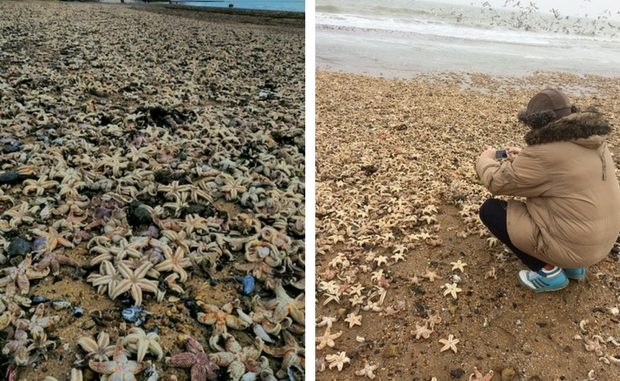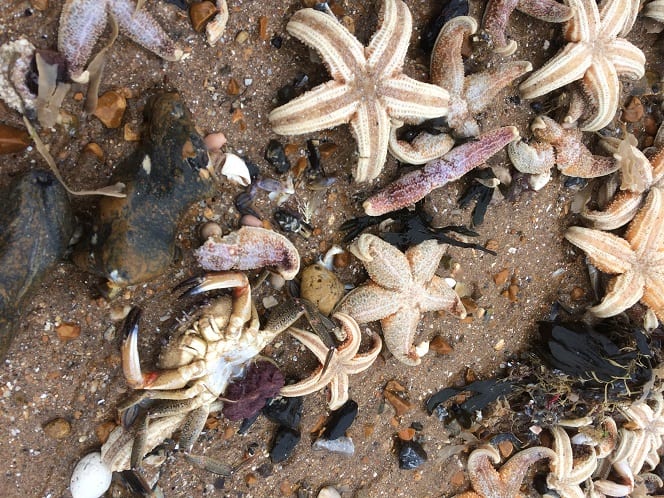
Nature will be left to take its course in clearing Thanet’s beaches of thousands of washed up starfish and other marine life.
Mostly dead starfish were piled on beaches across the isle over the weekend, including at Ramsgate, Dumpton, Westgate, Viking Bay and Palm Bay.
Finally made it down to #Ramsgate main sands this morning to witness the mass carnage of decaying starfish and crabs. So many that you wondered if there was any left alive 🙁 #BeastFromTheEast #winterwatch #Thanet #StormEmma pic.twitter.com/ZceoAnKFAy
— Keith Ross (@ramsgatebirds) March 5, 2018
Thanet council confirmed it would not be necessary to send out teams to clear the beaches as most of the marine life will be swept back into the water by the tide, although the authority said there may be some clean up of remnants after nature has taken its course.
JCBs currently on Margate Sands are sand levelling not clearing the marine life.
Volunteer Thanet Coastal Wardens will also be out assessing the impact this week.
The deluge of marine life on the beaches was part of a natural cycle caused by the extreme cold weather.
Tony Child, from Thanet Coast Project, said: “Unfortunately severe cold weather can seriously affect our marine wildlife and birds along the Thanet coast. After an exceptionally cold spell we often see large numbers of marine casualties – caught out by these freezing conditions – especially when caught at low tide and during unusually low sea temperatures – where they usually have a more stable water temperature that helps them survive.
Photos Lucy Anderton
“Volunteer Coastal Wardens will assess the extent of casualties in their bays. These conditions have also been extremely difficult times for our overwintering coastal birds – such as the Turnstone, that need to be able to feed to increase their weight with vital body fats in order to migrate and breed back in the Arctic this Spring.”
Tony Ovenden, from the Thanet and Sandwich Coastal Finds group, added: “The way the starfish have curled up is evidence that the sudden drop in temperature killed them off.
Photos Carly Jeffrey
“Normally when the temperature drops suddenly Cod feeds on the stunned marine life . As there are no Cod shoals inshore the food they would normally eat will come ashore. It is normally part of the natural cycle of things. However, the main beneficiaries this time will be the sea birds as nothing goes to waste in the natural world.”

Similar incidents happened across the isle in 2009, 2010 and 2011 when thousands of Devil crabs – also known as Velvet swimming crabs – starfish, lobsters, sponges and anemones, were washed up on beaches following severe weather.





